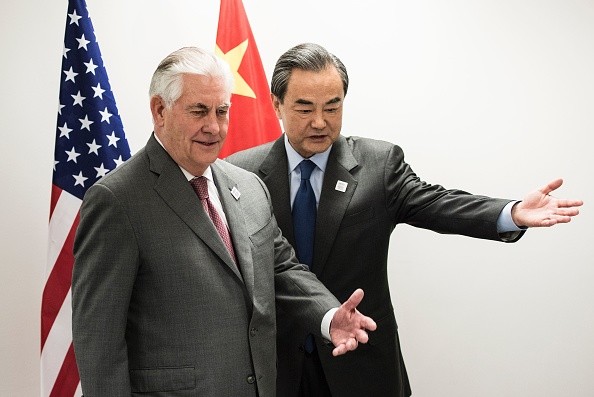Rex Tillerson, the Secretary of State of the United States, will visit Beijing on March 19 to discuss multilateral issues and relations with China and the U.S.
According to Mark Toner, the acting State Department spokesman of the U.S., this is Tillerson's maiden trip to Asia ever since he took the job as the top diplomat of U.S. President Donald Trump.
Toner stated at a press conference: "In each country, Secretary Tillerson will meet with senior officials to discuss bilateral and multilateral issues, including strategic coordination to address the advancing nuclear and missile threat from the DPRK, and reaffirm the administration's commitment to further broaden and enhance U.S. economic and security interests in the Asia-Pacific region."
Tillerson will be arriving in Tokyo, Japan, on March 15. He will then continue his trip and arrive in Seoul, South Korea, on March 17, then arrive in Beijing on March 18.
Toner also discussed the deployment of the Terminal High Altitude Area Defense (THAAD) anti-missile defense system in South Korea. He said that the U.S had already told China that THAAD was not meant to be a threat.
The People's Republic of China reiterated its opposition to the deployment of THAAD.
Geng Shuang, the spokesperson of the Chinese Foreign Ministry, said: "We will take steps to maintain our security interests." He urges that parties concerned on the THAAD row should refrain from going too far and stop its deployment.
According to a Republic of Korea (ROK) defense ministry official, two mobile launchers and a part of other equipment of THAAD arrived at Osan Air Base, 70 kilometers south of Seoul, on the evening of March 6.
"Tillerson may probably try to explain to China about the necessity of deploying THAAD. But Beijing will not back out of its opposition to THAAD because it can lead to regional strategic imbalance and poses a grave danger to the country's security," said Li Haidong, a professor of U.S. studies at China Foreign Affairs University.
China's Foreign Ministry stated that it welcomed the prospect of the visit of U.S. Secretary of State Tillerson.



























